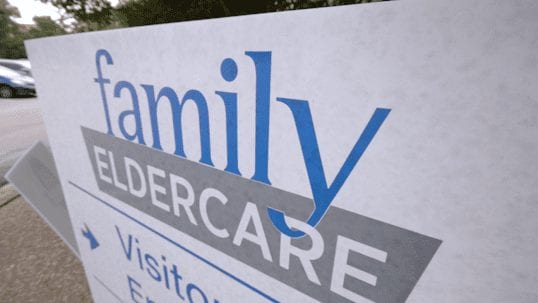Fiercely Focused: Family Eldercare
AUSTIN, Texas (June 30, 2020) — Austinites know Family Eldercare from its summer fan drive, but the organization also plays a critical role in ECHO’s mission to cultivate a community fiercely focused on ending homelessness.
The first installment of ECHO’s new partner spotlight series, “Fiercely Focused,” two Family Eldercare staff members explain their commitment to serving our older neighbors experiencing homelessness.
“A few years ago, we sat down with ECHO and we kind of analyzed the data,” said Sam Campbell, Family Eldercare’s rapid rehousing program manager. “We realized, hey, you know, about a third of the individuals who are experiencing homelessness that have taken the coordinated assessment are 55 and older. So what that told us as a community is we really need to set aside and identify resources for that particular population.”
Founded in 1982 to serve aging central Texans, Family Eldercare was a natural fit. Now, the rapid rehousing program serves about 112 people each fiscal year, Campbell explained. Her team of three case managers provide housing options for people experiencing homelessness and connect them to continuing resources to keep them housed.
“It is very rewarding whenever we get to move somebody into housing, because that’s the entire goal of the program,” she said. “But what we know as providers is the work is kind of just beginning.”
Dylan Lowery, a housing stability case manager at Family Eldercare, is part of the continuing support system. “Upon move-in, I’m there to support them to create a household budget, to work on life skills that they’ve maybe not been able to focus on,” he said.
Lowery works with veterans in Family Eldercare’s new Grant Per Diem (GPD) program funded by the U.S. Department of Veterans Affairs.
“Family Eldercare is one of two projects in Texas that are providing what the VA calls a housing retention service,” Lowery explained. “Which is making sure that people who are transitioning out of the homeless services system into permanent housing have ongoing support once they’re in housing to support their stability, for them to remain in housing, for them to become independent and self-sufficient, and never fall back into homelessness again.”
Lowery and Campbell share the frustration of a lack of affordable housing in Austin/Travis County to quickly get people experiencing homelessness into housing. Watch the video above for thier views on what our community can do about it.


